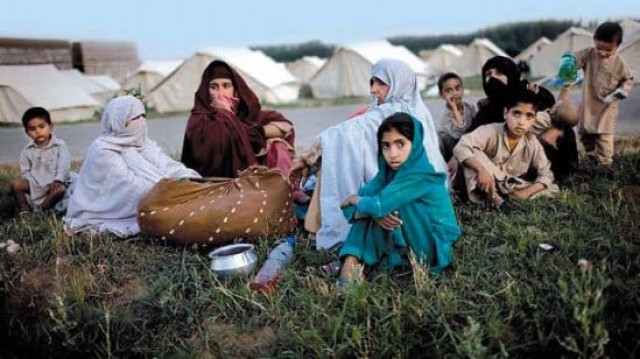The human cost of fighting in the north

The country faced its biggest humanitarian crisis in decades last year when three million people fled a military onslaught to dislodge Taliban insurgents from Swat Valley, prompting an outpouring of international help.
But as the year has passed, donor money has dried up, forcing aid groups to cut projects, despite the expansion of military operations in the northwest and the ongoing needs of families too frightened to return home. “The crisis is far from over and hundreds of thousands of people are still in desperate need,” said Caitlin Brady, head of the Pakistan Humanitarian Forum, a group of dozens of local and global aid agencies.
“Already many people are not getting the help they need, and we’re now faced with having to close more programmes for lack of money,” said Brady, also acting country director for the International Rescue Committee.
Of the 537 million dollars requested by the United Nations and aid agencies to provide for the displaced in 2010, international donors have so far only come forward with 170 million dollars, the PHF report said.
Most of the three million people displaced by the Swat offensive returned home last summer, but the army has since launched fresh assaults on the tribal regions along the Afghan border, sending more people fleeing to safer areas.
Washington has called the semi-autonomous tribal belt the most dangerous place on Earth, rife with al Qaeda, Taliban and other militant groups who fled Afghanistan after the US-led invasion in late 2001. “More than 1.3 million people are displaced, dependant on emergency relief to survive, yet funding for the emergency response is drying up,” PHF said.
“Over the past month, some 800 families have been arriving in the districts of Hangu and Kohat every day, fleeing an escalation of fighting in Orakzai and Kurram agencies,” the report added.
These people -- many of whom stay in crowded relatives’ homes or refugee camps -- need food, medicine, shelter and help getting work. The group quoted 25-year-old Hajra, who they said left her village in Bajaur Agency on foot, desperate for help from anyone.



















COMMENTS
Comments are moderated and generally will be posted if they are on-topic and not abusive.
For more information, please see our Comments FAQ